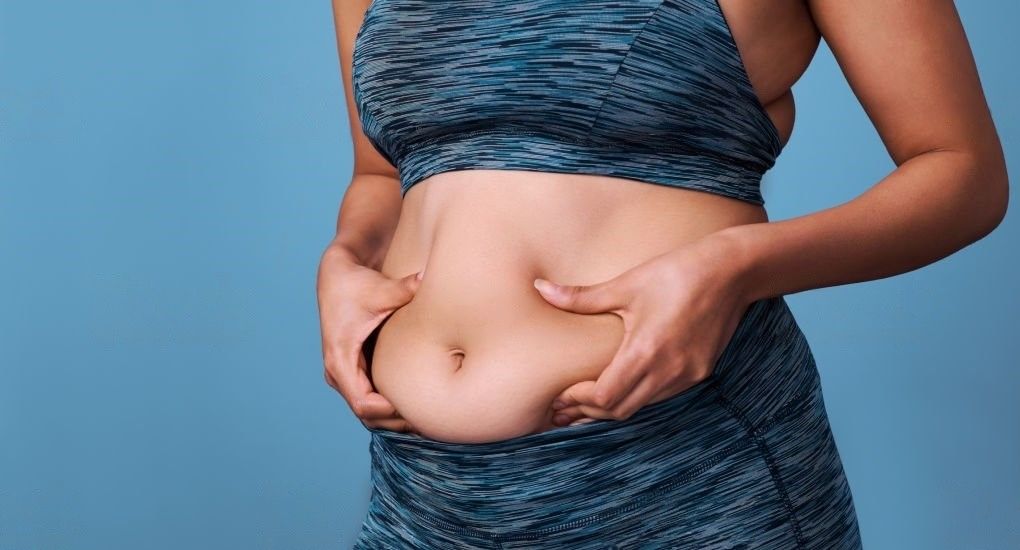Can Beverages Help in Shedding Belly Fat?
To lose belly fat, it's important to eat the right amount of food and stay active with exercise.

Belly fat, often referred to as visceral fat, is not only a cosmetic concern but also a health issue. Excess belly fat has been linked to various health conditions, including heart disease and diabetes. Many people seek effective ways to reduce this stubborn fat. While a balanced diet and regular exercise are crucial components of any weight loss strategy, can certain beverages play a role in helping shed belly fat? In this blog, we'll dig into the science behind how the drinks we consume can affect the fat around our belly and see if there are any beverages that can actually help us get a slimmer waistline.
Understanding Belly Fat and Its Dangers
Before we explore the potential role of beverages, let's first understand what belly fat is and why it's a cause for concern.
Belly fat can be categorized into two types: subcutaneous fat, which lies just beneath the skin, and visceral fat, which is found deep within the abdominal cavity, surrounding vital organs like the liver and pancreas. Visceral fat, in particular, is associated with an increased risk of cardiovascular disease, insulin resistance, and inflammation.
The Science of Fat Loss
For fat loss to occur, you need to create a calorie deficit, where you burn more calories than you consume. Exercise and diet are the primary tools for achieving this deficit. However, some beverages may offer additional benefits.
1. Green Tea - Metabolism Booster
Green tea is often hailed for its potential to boost metabolism and aid in fat burning. This effect is primarily attributed to the presence of catechins, a type of antioxidant, particularly epigallocatechin gallate (EGCG).
EGCG has been shown in studies to increase metabolic rate and enhance fat oxidation. This means that when you drink green tea, your body may burn calories more efficiently, potentially contributing to belly fat reduction.
2. Lemon Water - Hydration and Digestion
Lemon water is a simple yet popular beverage that some people turn to for weight loss. It is believed to aid digestion and promote hydration.
Adequate hydration is essential for overall health and can support weight loss by helping control appetite. Lemon water adds flavor to plain water, making it more appealing and encouraging increased fluid intake. Additionally, the acidity of lemon juice may aid in digestion and reduce bloating.
3. Apple Cider Vinegar - Blood Sugar Regulation
Apple cider vinegar has gained attention for its potential to regulate blood sugar levels and improve insulin sensitivity.
Stable blood sugar levels are crucial for preventing excessive fat storage, especially around the abdominal area. Some studies suggest that apple cider vinegar may help lower blood sugar spikes after meals, potentially reducing the accumulation of visceral fat.
4. Protein Shakes - Appetite Control
Protein shakes, especially those low in sugar and high in protein content, can be satisfying and help control appetite.
Protein is known to increase feelings of fullness and reduce hunger, which can prevent overeating. By replacing high-calorie snacks or meals with protein shakes, you can create a calorie deficit, contributing to fat loss, including belly fat.
5. Water - The Ultimate Weight Loss Beverage
While not a conventional "beverage" in the same sense as others on this list, water is a fundamental component of any weight loss journey.
Staying well-hydrated is essential for overall health and can indirectly support belly fat reduction. Sometimes, our bodies confuse thirst with hunger, leading to unnecessary calorie consumption. Drinking enough water can help curb this confusion, reduce overall calorie intake, and support metabolism.
SUMMARY
In summary, while beverages alone won't magically melt away belly fat, certain drinks can complement a healthy diet and exercise routine. Green tea, with its metabolism-boosting catechins, lemon water for hydration and digestion, apple cider vinegar for blood sugar regulation, protein shakes for appetite control, and plain water for overall health, can all play a role in a comprehensive weight loss strategy. However, it's essential to remember that the key to losing belly fat is a balanced approach that includes a calorie-controlled diet and regular physical activity.
Jayti Shah is a Clinical Nutritionist with a master's degree in Clinical Nutrition and Dietetics. She is a member of the Indian Dietetic Association (IDA). Over the last 9 years, she has helped 400 clients in their clinical and weight loss journeys. She works with SocialBoat as a nutrition consultant.
At SocialBoat, we offer custom diet plans and guided workouts to help you achieve your goals in a 360-degree approach. Our gamified experience ensures that you don’t find workouts boring and we reward you for being consistent with your efforts.

REFERENCES
- Dulloo, A. G., Duret, C., Rohrer, D., Girardier, L., Mensi, N., Fathi, M., ... & Vandermander, J. (1999). Efficacy of a green tea extract rich in catechin polyphenols and caffeine in increasing 24-h energy expenditure and fat oxidation in humans. The American Journal of Clinical Nutrition, 70(6), 1040-1045.
- Pittler, M. H., & Ernst, E. (2004). Dietary supplements for body-weight reduction: a systematic review. The American Journal of Clinical Nutrition, 79(4), 529-536.
- Hlebowicz, J., Darwiche, G., Björgell, O., & Almér, L. O. (2007). Effect of apple cider vinegar on delayed gastric emptying in patients with type 1 diabetes mellitus: a pilot study. BMC Gastroenterology, 7(1), 1-7.
- Rolls, B. J., Hetherington, M., & Burley, V. J. (1988). The specificity of satiety: The influence of foods of different macronutrient content on the development of satiety. Physiology & Behavior, 43(2), 145-153.
- Stookey, J. D., Constant, F., Popkin, B. M., & Gardner, C. D. (2008). Drinking water is associated with weight loss in overweight dieting women independent of diet and activity. Obesity, 16(11), 2481-2488.
